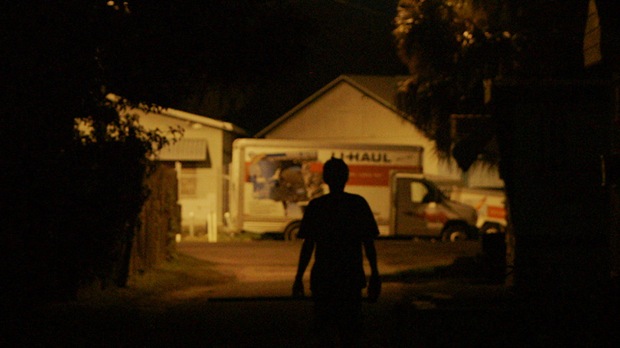 Back to selection
Back to selection
“The People Behind the Crimes”: Directors Frida Barkfors & Lasse Barkfors | Pervert Park
 Pervert Park
Pervert Park
What fear — whether it’s personal, or one related to the development, financing, production or distribution of your film — did you have to confront and conquer in the making of your movie?
When we first got to Florida Justice Transitions in 2010, we expected to make a film about the parallel society that we had read the sex offenders in this trailer park lived in. Very soon we met the people in the park, and by sitting with them in therapy, talking to them, and getting them to open up about their situation, we learned about sex offences and sex offenders being much more complex than we had ever read in mainstream media before. We could no longer make a film about a parallel society – that actually didn’t exist – but had to portray the people behind the crimes. We remember a talk we had in the beginning with Don Sweeney, the sex offenders weekly counselor, who said that the stigmatization of sex offenders doesn’t help the sex offenders – but most of all, it doesn’t help their victims. Even writing about this now still produces some fear of being misunderstood, as what the film tells and shows, isn’t possible to narrow down in a short text. We wanted to make a film that could open up to a more nuanced debate on sex crimes, and how to handle them and actually help the victims of sexual abuse – but with that comes a constant fear of being misunderstood as defending sex offenders, or being accused of offending victims of sex crimes rather than helping.
[PREMIERE SCREENING: Friday January 23 at 9 — Broadway Centre Cinema 6]
 Pervert Park
Pervert Park What fear — whether it’s personal, or one related to the development, financing, production or distribution of your film — did you have to confront and conquer in the making of your movie?
When we first got to Florida Justice Transitions in 2010, we expected to make a film about the parallel society that we had read the sex offenders in this trailer park lived in. Very soon we met the people in the park, and by sitting with them in therapy, talking to them, and getting them to open up about their situation, we learned about sex offences and sex offenders being much more complex than we had ever read in mainstream media before. We could no longer make a film about a parallel society – that actually didn’t exist – but had to portray the people behind the crimes. We remember a talk we had in the beginning with Don Sweeney, the sex offenders weekly counselor, who said that the stigmatization of sex offenders doesn’t help the sex offenders – but most of all, it doesn’t help their victims. Even writing about this now still produces some fear of being misunderstood, as what the film tells and shows, isn’t possible to narrow down in a short text. We wanted to make a film that could open up to a more nuanced debate on sex crimes, and how to handle them and actually help the victims of sexual abuse – but with that comes a constant fear of being misunderstood as defending sex offenders, or being accused of offending victims of sex crimes rather than helping.
[PREMIERE SCREENING: Friday January 23 at 9 — Broadway Centre Cinema 6]
